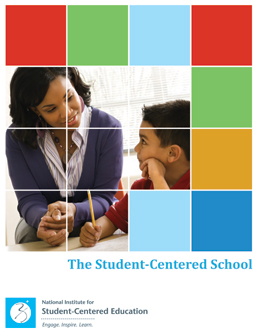10:45am–12:00pm
SESSION A: Community Engagement/Development in Student-Centered Education
SESSION B: Project-Based/Mastery-Based Curriculum in Student-Centered Education
SESSION C: Brain-Based/Mastery-Based Curriculum in Student-Centered Education
SESSION D: Leadership and Student-Centered Education
SESSION E: Balancing the Common Core in Student-Centered Education
SESSION A: Community Engagement/Development and Student-Centered Education
Methods for building community support around the importance of reaching each and every student.
10:45am–12:00pm
Partnering to Support Powerful Teaching and Learning
Nastasia Lawton-Sticklor, Research Scientist, Clark University
Kate Bielaczyc, Director, Hiatt Center for Urban Education
Tom Del Prete, Director, Adams Institute for Urban Teaching and School Practice
Jie Park, Assistant Professor of Education, Clark University
Ricci Hall, Principal, Claremont Academy
Bob Knittle, Instructional Coach, Claremont Academy
For schools, building a community of practitioner inquiry that puts students at the center of instruction and school practice brings powerful benefits and also significant challenges. Through detailing the creation of a research partnership between a university and a public 7-12 school, participants will explore how including and involving students in this work can create a space for students to reflect on their learning, as well as help teachers reflect on their practices based on student narratives. Furthermore, this inquiry and research can support powerful teaching and learning environments that focus on the rich variability of student experiences that play a role in their learning.
In this session, educators will:
● outline a process for designing inquiry that emphasizes qualitative methods to capture student diversity and experience
● discuss how data can be used by educators to reflect on individual and school-wide practice
● explore how educators can leverage partnerships to support research or design their own inquiry that puts students at the center of reflection on teaching and learning
SESSION B: Project/Mastery-Based Curriculum and Student-Centered Education
Methods for rethinking the way students are being reached – moving away from ‘one-size fits all’ or ‘traditional’ models.
10:45am–12:00pm
Academic Integrity + Student Ownership + Apprenticeship = Service Learning
Tracy Harkins, Director, Kids Consortium
Service-Learning is a term that is commonly confused with community service or community based learning. This talk will discuss the key elements to a service-learning project academic integrity, student ownership and apprentice citizenship and will give examples of service-learning projects across disciplines and grade levels. Participants will have the opportunity to think about how to use this teaching strategy to meet numerous school and student outcomes.
SESSION C: Brain-Based Learning and Student-Centered Education
Methods for using brain-based research actively in the classroom to more effectively reach each student.
10:45am–12:00pm
Keeping the Brain in Mind: The Impact of Trauma and Attachment Disruptions on Learning and Behavior
Kevin Creeden, Director of Assessment and Research, Whitney Academy
Research has shown a connection between early trauma experiences, attachment difficulties and disrupted neurological development in children. The effect of these early developmental experiences can have a significant impact on specific brain functions such as emotional and behavioral regulation, language processing, and adaptive decision making. This workshop looks at the connections between dysfunctional histories, problematic behavior and learning difficulties by examining what we know about the neurological impact of early trauma and insecure attachment relationships on children and adolescents. Interventions that seek to integrate the brain based research on trauma, attachment, and learning difficulties will be discussed with an emphasis on interventions that focus on facilitating overall developmental progress.
In this session, participants will:
● discuss the neurological, behavioral and learning difficulties that can present with students who have experienced trauma
● build a contextual understanding of affected students by identifying the various obstacles and triggers that they face in meeting daily demands
● explore methods for improving relationships, emotional and behavioral regulation, and learning for the most challenging student cases
SESSION D: Leadership and Student-Centered Education
Methods for developing leadership in schools that benefit all students.
10:45am–12:00pm
Planning and Implementation of Successful Student Advisory Programs
Denise Wolk, Senior Program Associate, Engaging Schools
Advisory programs hold the promise of creating personalized learning environments for students, but without careful planning and implementation the promise is often unfulfilled. This hands-on session is for schools that are either considering advisories or that are early in the planning stages for advisory program, as it is important design and implement programs that school leaders and staff can create, assess and sustain without getting overwhelmed.
In this session, educators will:
● explore the essential leadership components of advisory design, and the role of advisor
● outline the steps one must take to build buy-in from staff and students
● identify the ongoing advisory professional development needs and other essentials for successful planning and implementation
SESSION E: Balancing the Common Core and Student-Centered Education
Best practices for finding balance between common-core obtainment and a positive school culture/climate that supports every student.
10:45am–12:00pm
Climate Change (Not the Kind You’re Thinking)
Scott Morrison, Director of Curriculum and Technology, Manchester Essex Regional School District
Climate change has served as a polarizing theory in the natural world. On one side of the aisle are supporters who believe that the warming of the planet is caused by increased carbon dioxide emissions and on the other side are those who dismiss the notion as an alarmist theory. Similarly, there is a debate in public education as to whether the conditions needed to foster the academic, social, and emotional climate for students and staff are deteriorating. This presentation posits that public education is experiencing a rise in temperature as a result of too much educational carbon dioxide (E-CO2). This E-CO2 has arrived en masse in the form of new student accountability systems, national standards and assessments, the development of a new teacher evaluation model and many other state and federal educational initiatives. Through an analysis of the potential effects of climate change in the natural world, this presentation establishes that those very same effects can be applied to the human systems of our public schools and demonstrates how increasing levels of E-CO2 is having a negative effect on school climate.
